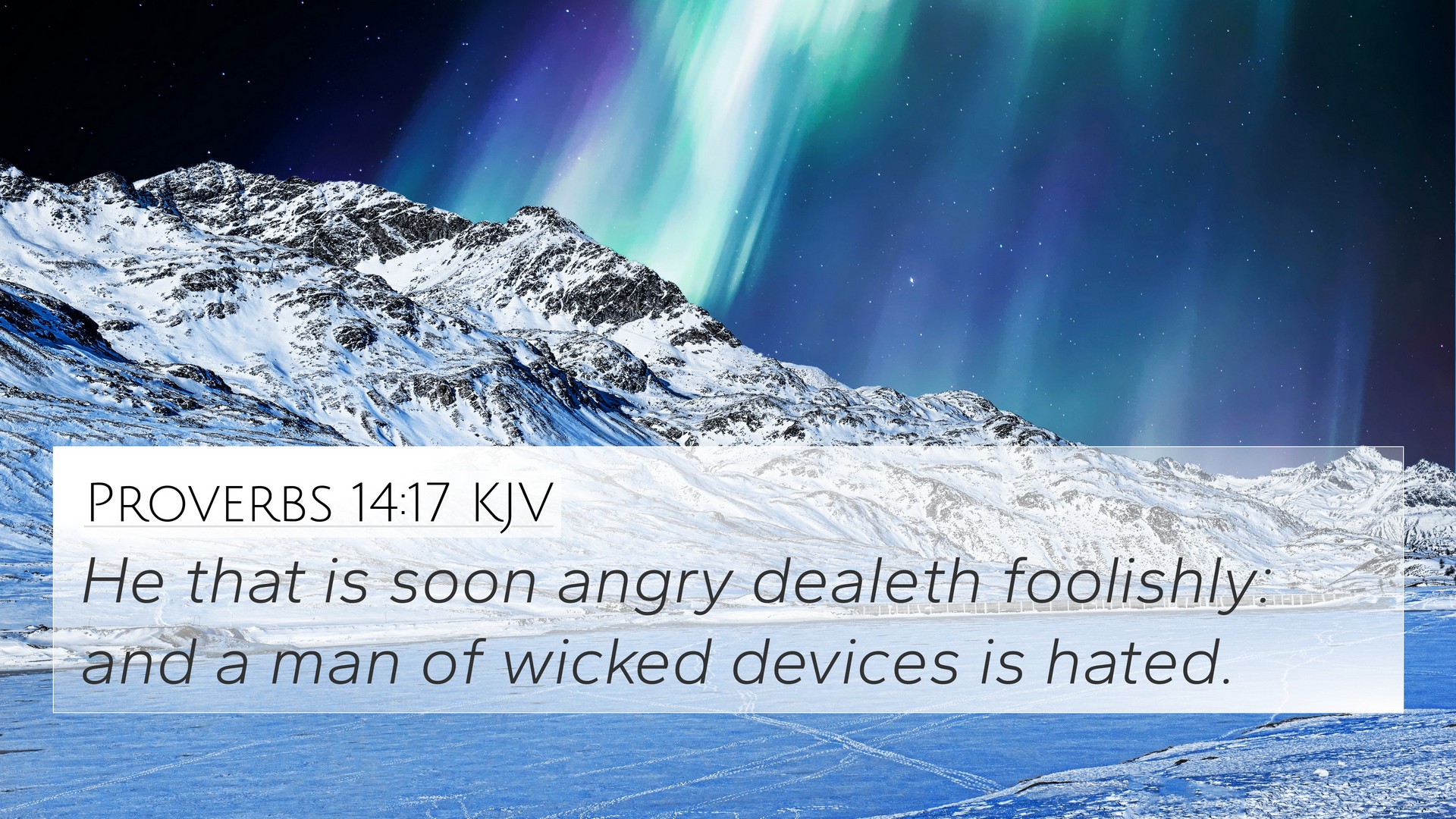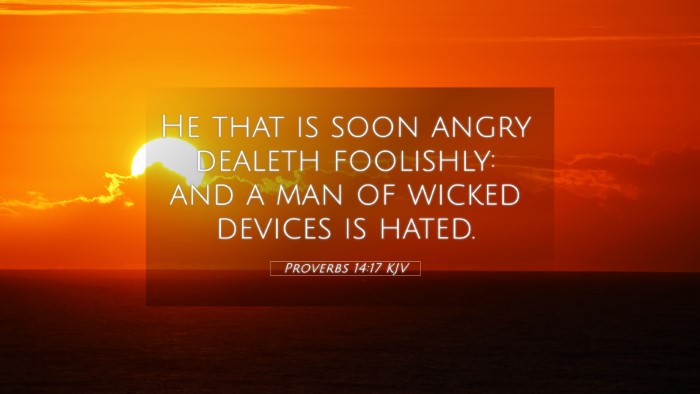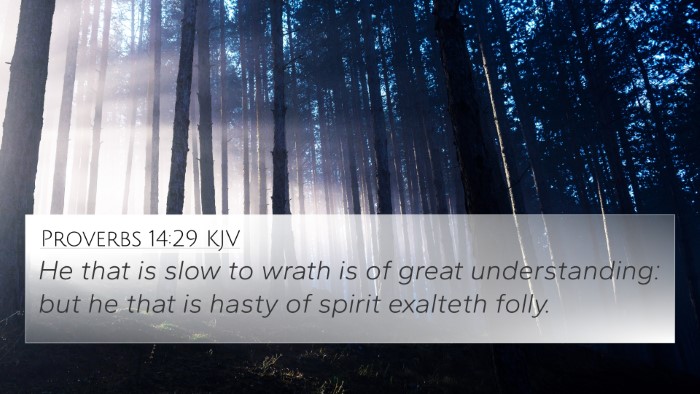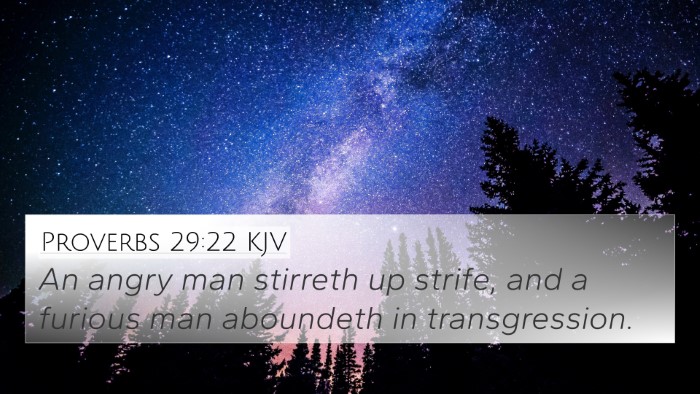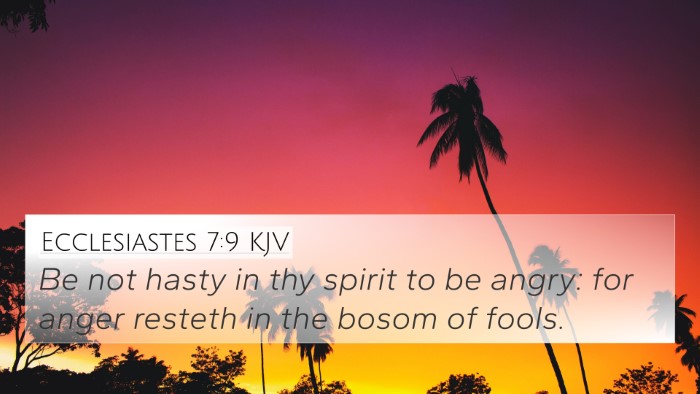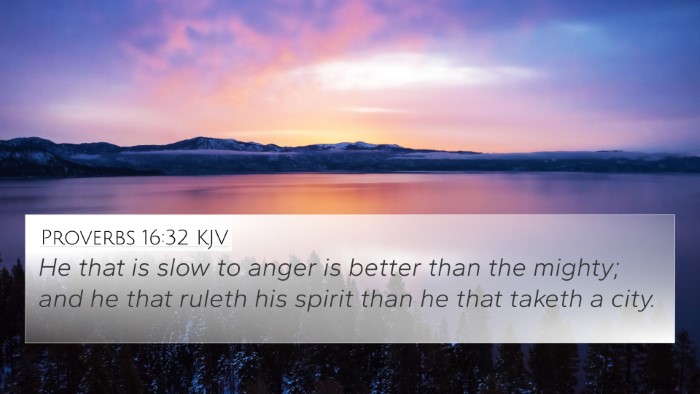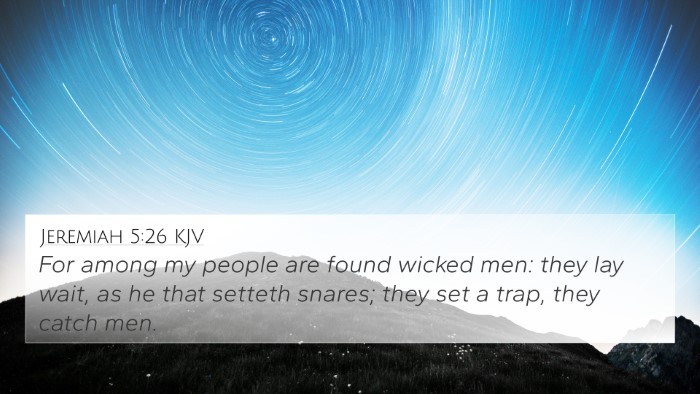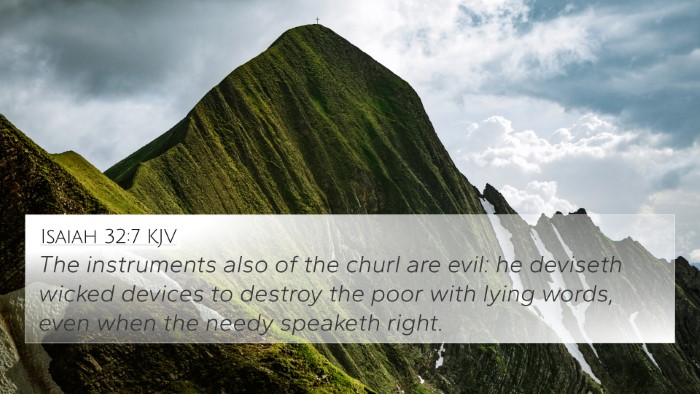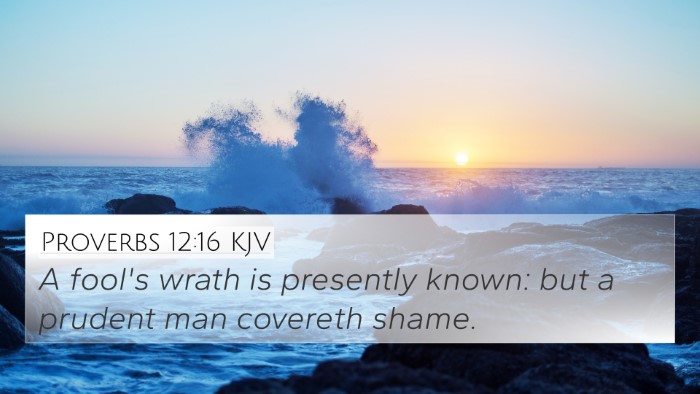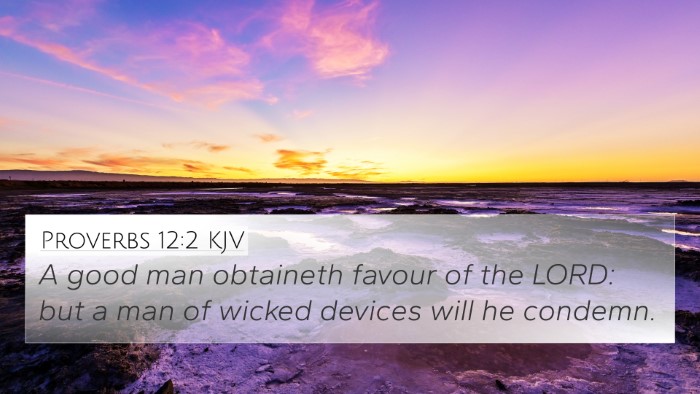Understanding Proverbs 14:17
The verse Proverbs 14:17 states: "He that is soon angry dealeth foolishly: but a man of understanding holdeth his peace." This scripture underscores the importance of self-control and wisdom in handling anger, presenting a profound lesson applicable to life's daily challenges.
Summary of Meaning
Proverbs 14:17 emphasizes the perils associated with hasty anger and contrasts it with the prudence of a wise person who chooses restraint. This principle is applicable across various circumstances, promoting peace and thoughtful responses rather than impulsive reactions.
Insights from Commentaries
Matthew Henry's Commentary
Matthew Henry observes that an individual who easily succumbs to anger acts without reflection, often leading to foolish decisions. He stresses the value of patience and temperance, highlighting the idea that true understanding comes from self-control and consideration.
Albert Barnes' Notes
Albert Barnes elaborates on the contrast between a quick-tempered individual and one who exhibits restraint. He notes that those who remain calm in the face of provocation show wisdom and are more likely to achieve positive outcomes in their interactions.
Adam Clarke's Commentary
Adam Clarke highlights the folly of allowing anger to dictate one’s actions. He emphasizes that it is a mark of wisdom to remain silent and composed, suggesting that this restraint leads to greater respect and understanding in social contexts.
Cross-References for Deeper Understanding
Proverbs 14:17 is a pivotal verse that connects with numerous other scriptures, demonstrating thematic coherence in biblical teachings. Here are some related verses that explore similar themes:
- James 1:19: "Wherefore, my beloved brethren, let every man be swift to hear, slow to speak, slow to wrath."
- Proverbs 15:1: "A soft answer turneth away wrath: but grievous words stir up anger."
- Ecclesiastes 7:9: "Be not hasty in thy spirit to be angry: for anger resteth in the bosom of fools."
- Colossians 3:8: "But now ye also put off all these; anger, wrath, malice, blasphemy, filthy communication out of your mouth."
- Ephesians 4:26: "Be ye angry, and sin not: let not the sun go down upon your wrath."
- Proverbs 16:32: "He that is slow to anger is better than the mighty; and he that ruleth his spirit than he that taketh a city."
- Proverbs 19:11: "The discretion of a man deferreth his anger; and it is his glory to pass over a transgression."
Thematic Connections
This verse and its parallels engage in a dialogue on anger management, wisdom, and self-control. Such themes recur throughout the Bible, emphasizing the need for measured responses rather than impulsive actions.
Practical Applications
For individuals seeking to apply the wisdom of Proverbs 14:17:
- Practice self-control by pausing before reacting to provocation.
- Engage in reflective practices such as prayer or meditation when feeling anger.
- Use communication skills to express concerns without escalating tensions.
Using Cross-References in Study
To enrich one's understanding of biblical teachings, utilizing a Bible cross-reference guide is invaluable. Such tools facilitate:
- Identifying connections between Old and New Testament literature.
- Exploring detailed analyses across different books of the Bible.
- Understanding context and nuances within scripture.
Conclusion
In summary, Proverbs 14:17 serves as a timeless reminder of the virtue of patience and the wisdom of thoughtfulness. By engaging with related scriptures, believers can cultivate a deeper understanding of biblical themes and apply them wisely in their lives.
